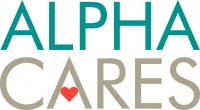October is Breast Cancer Awareness Month! In the United States, about 1 in every 8 women will develop an invasive breast cancer over her lifetime. The two most significant risk factors of breast cancer are being a woman and growing older. However it is possible that a man or a young person could develop breast cancer. It’s the most deadly cancer for women other than lung cancer. About 15 percent of those diagnosed with breast cancer have a relative who also has been diagnosed. When a person has a family member with this disease, their probabilities of having it doubles. The other 85% of people diagnosed do not have a relative with breast cancer. However, through raising funds, awareness, and health studies, the breast cancer incidence rate has been dropping since 2000.
Published in
Alpha Cares
In June we are spreading awareness for conserving the environment! In America, we often use many resources without thinking about the consequences. Although our country makes up less than 5 percent of the world population, we still consume over 30 percent of its resources. Also, 110 million Americans live with such high levels of air pollution that threaten their lives. This is why it is so important that we spread awareness about the environment. Not only is the health of our planet in danger, but also our own health. Not many people are considering the impact that their actions are having on their planet and their neighbors. This is why the Alpha Group will be hosting a Tree Planting event right here at Alpha Place! This is open to all clients, field employees, in-house employees, and the friends and families of everyone! Come join us with your shovels and garden…
Published in
Alpha Cares
May is nationally known as ALS Awareness Month! ALS stands for amyotrophic lateral sclerosis, which is a motor neuron disease that affects a person’s ability to walk, dress, speak, swallow, and eventually breathe. About 6,000 people in the United States are diagnosed with ALS every year, yet there is no known cause or cure. ALS is also commonly known as Lou Gehrig’s disease, which refers to the Yankee’s first baseman who passed away from the disease in 1941 at just 37 years old. Although there have been significant advances in research and treatment, there is still much more to learn about ALS. ALS Awareness Month seeks to spread awareness, and encourages donations to support research, assist with family services, and provide financial support to individuals with ALS. The Alpha Group will be accepting donations to benefit the Massachusetts Chapter of the ALS Association, and will also be participating in the…
Published in
Alpha Cares
April is Autism Awareness Month! Autism is a developmental disability that derives from an abnormality in the brain. It affects about 1 in every 68 births. It is characterized by difficulties with social and communication skills, repetition of behaviors, and resistance to major or minor changes in routine. Its full name is Autism Spectrum Disorder (ASD), which implies that some cases are more serious than others. Although there is no cure for Autism, early intervention with children that do have Autism is vital to give them better brain function, communication skills, and social behaviors. The earlier it is detected, the more help a child can get. That is why it is very important to spread awareness about Autism Spectrum Disorder! The Alpha Group is looking to help spread this awareness by holding a fundraiser. This will help raise funds toward public awareness, safety, family crisis assistance, job training, housing and…
Published in
Alpha Cares
To Keep the Weight Off, Keep Tracking Your Diet NEW ORLEANS — Keeping track of the foods you eat is an important strategy for weight loss, but continuing to monitor what you eat is also important to prevent regaining that weight. Now, a new study finds that stopping food tracking is linked to regaining weight. In order to prevent re-gaining weight, people should make an effort four months after starting a diet to refocus on food tracking, according to the study, presented here Sunday (Nov. 13) at the American Heart Association's annual meeting called the Scientific Sessions. The researchers found that people tended to stop dietary monitoring after about four months, and that this was followed by regaining weight, said Qianheng Ma, a public health researcher at the University of Pittsburgh and the lead author of the study. The effects of food tracking, or "dietary self-monitoring," on weight loss have…
Published in
Alpha Cares
Good vs. Bad Carbohydrates Carbohydrates are an important part of your diet, but that doesn't mean you're free to load up on cakes and cookies to get your daily amount. Here, we explain the difference between good and bad carbohydrates. By Diana Rodriguez Medically Reviewed by Lindsey Marcellin, MD, MPH Carbohydrates are an important part of a healthy diet, but there's much discussion about the good and bad carbohydrates. So how do you know which is which? The answer is both simple — and complex. Good vs. Bad Carbohydrates Carbohydrates, often referred to as “carbs,” are your body's primary energy source, and they're a crucial part of any healthy diet. Carbs should never be avoided, but it is important to understand that not all carbs are alike. Carbohydrates can be either simple (nicknamed "bad") or complex (nicknamed "good") based on their chemical makeup and what your body does with them.…
Published in
Alpha Cares
Why Fruits and Vegetables Are Vital Eating a diet rich in fruits and vegetables is important for good health. Find out why experts say Mother Nature's bounty packs better nutrients than supplements. If we are what we eat, then many of us must be tripping all over the place due to a lack of balance. That's because the average American eats about three servings of fruits and vegetables per day — a stark contrast to the Department of Health and Human Services (HHS) and the U.S. Department of Agriculture's (USDA) new guidelines stating that we should be eating 5 to 13 servings of nature's best, depending on the number of calories you need. So if we want to grow to be strong like Popeye, why can't we just down some supplements instead of devouring a pile of spinach? Nutrients in fresh fruits and vegetables work together. Kristine Wallerius Cuthrell, MPH,…
Published in
Alpha Cares
March Is… National Nutrition Month March is National Nutrition Month! This month we will be reviewing what food we put into our bodies and considering better and healthier options. Americans typically exceed the recommended daily portions for calories from solid fats and added sugars, refined grains, sodium, and saturated fats and yet do not get enough of vegetables, fruits, whole-grains, dairy products, and oils. During the month of March, let’s look at our diet and nutrition and see where we can improve. Studies have shown that keeping track of your eating throughout the day for extended periods of time can help people cut down on their eating. Many people have food journals or use Smartphone applications such as My Fitness Pal that keep track of eating, drinking, and exercise habits. The Alpha Group will also be holding a month-long food drive in the lobby of Alpha Place. These donations will…
Published in
Alpha Cares
Smartphones Could Be a Boon to Heart Health Research Smartphones might revolutionize cardiac research by giving instant, accurate insight into the physical activity of people using them, a new study finds. "People check these devices [an average of] 46 times a day," noted study senior author Dr. Euan Ashley, an associate professor of cardiovascular medicine at Stanford University in Palo Alto, Calif. "From a cardiovascular health standpoint, we can use that personal attachment to measure physical activity, heart rate and more," he said in a university news release. In the study, Ashley's team enlisted subjects via a free iPhone app called MyHeart Counts. The researchers enrolled more than 47,000 Americans across all 50 states, and were able to track data about the physical activity of nearly 5,000 participants who took a six-minute walking fitness test. "The ultimate goals of the MyHeart Counts study are to provide real-world evidence of both…
Published in
Alpha Cares
Don’t wait to get help if you experience any of these heart attack warning signs. Although some heart attacks are sudden and intense, most start slowly, with mild pain or discomfort. Pay attention to your body — and call 911 if you feel: Chest discomfort. Most heart attacks involve discomfort in the center of the chest that lasts more than a few minutes, or that goes away and comes back. It can feel like uncomfortable pressure, squeezing, fullness or pain. Discomfort in other areas of the upper body. Symptoms can include pain or discomfort in one or both arms, the back, neck, jaw or stomach. Shortness of breath with or without chest discomfort. Other signs may include breaking out in a cold sweat, nausea or lightheadedness. Download our heart attack warning signs infographic. Symptoms Vary Between Men and Women As with men, women's most common heart attack symptom is chest…
Published in
Alpha Cares
More...
By making these 10 lifestyle changes, you can lower your blood pressure and reduce your risk of heart disease. If you've been diagnosed with high blood pressure, you might be worried about taking medication to bring your numbers down. Lifestyle plays an important role in treating your high blood pressure. If you successfully control your blood pressure with a healthy lifestyle, you might avoid, delay or reduce the need for medication. Here are 10 lifestyle changes you can make to lower your blood pressure and keep it down. 1. Lose extra pounds and watch your waistline Blood pressure often increases as weight increases. Being overweight also can cause disrupted breathing while you sleep (sleep apnea), which further raises your blood pressure. Weight loss is one of the most effective lifestyle changes for controlling blood pressure. Losing just 10 pounds (4.5 kilograms) can help reduce your blood pressure. Besides shedding pounds,…
Published in
Alpha Cares
Join us during American Heart Health Month as we put in time and effort to care for our hearts. Follow the Heart Truth’s “28-Days to a Healthy Heart” Challenge yourself every day of the month of February to do more for your heart! When we make an effort to care for our heart, we will definitely reap the benefits.
Published in
Alpha Cares
February Is… American Hearth Health Month February is American Heart Health Month! The heart needs a lot of help in order to stay strong and healthy, but it’s easy for you to make some daily changes that will keep your heart ticking! Heart disease is the leading cause of death among both men and women. Also one in every three adults in the United States has high blood pressure, which not only can damage your heart, but also your arteries, brain, and kidneys. Join us during American Heart Health Month as we put in time and effort to care for our hearts. Follow the Heart Truth’s “28-Days to a Healthy Heart” Challenge yourself every day of the month of February to do more for your heart! When we make an effort to care for our heart, we will definitely reap the benefits. Please take the time to learn more about…
Published in
Alpha Cares
Lives You Save: Patient Stories Your Gift...Their Life: How Patients Benefit Every time you donate blood you help save a life. Sounds extreme?Not to the patients whose lives have been saved through the efforts of our donors. Brandon Levine On January 30, 2015 Brandon received the rare opportunity to meet with 40 of the people who helped saved his life through blood donations. Brandon nearly died in a motorcycle accident on April 27th and in efforts to save him received over 200 units of blood products. During the event, Brandon was able to share his story with the donors that helped save his life and personally thank them by saying "...a part of you is inside of me and that's why I'm standing here today." Read the full story » Related Links: UCLA Health | CBS Los Angeles | Yahoo! News |U.S. News & World Report | Daily Mail Jennifer…
Published in
Alpha Cares








